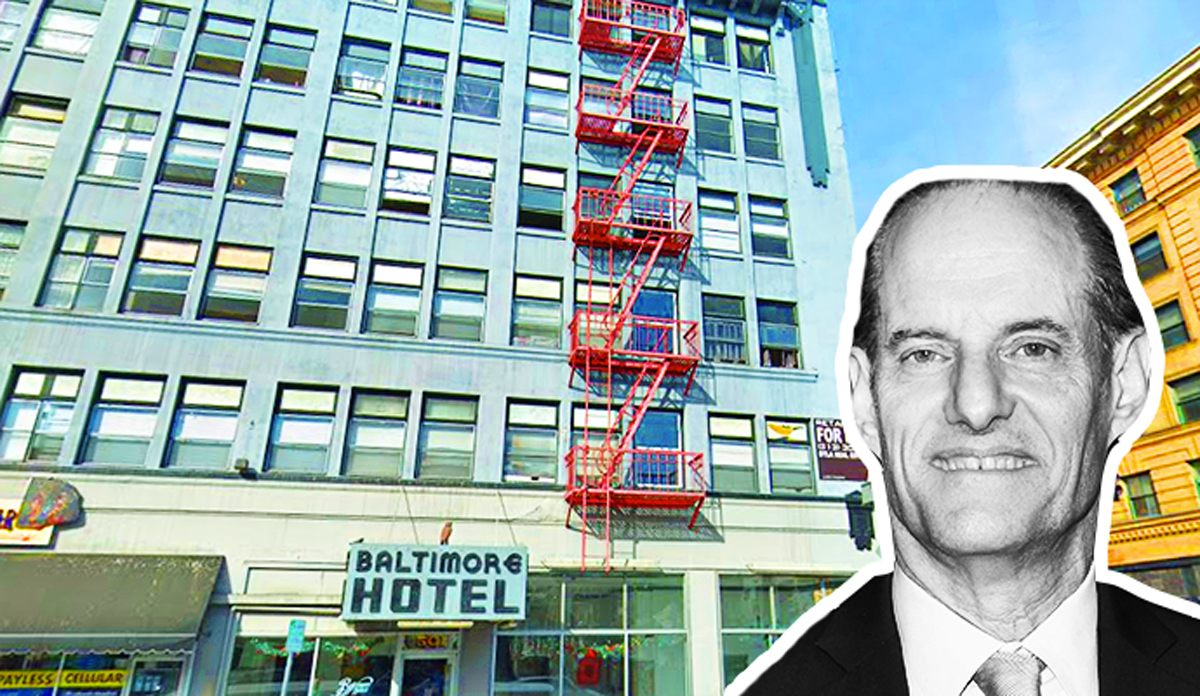The AIDS Healthcare Foundation is converting another former hotel in Downtown Los Angeles into housing for the city’s homeless.
The organization announced that its subsidiary, Healthy Housing Foundation by AHF, will buy the 204-room Hotel Baltimore at 501 S. Los Angeles Street. It will continue to operate it as a single-room occupancy hotel, in which rooms are rented out on a monthly basis. The Baltimore’s existing 76 residents will remain in place, according to the HFF.
The 66,000-square-foot hotel last sold in 2016 for $29.3 million. HFF did not disclose the purchase price.
The 108-year-old hotel is the fourth property that HHF has bought since October 2017 that it will convert to housing homeless Angelenos. It is directly across the street from the 150-room King Edward Hotel that the HHF purchased in April. The organization started with the 202-room Madison Hotel on 7th Street and followed with the former Sunset 8 Motel in Hollywood in January.
All three of the hotels in Downtown are single-room occupancy hotels. SROs are often the most easily accessible and affordable housing options for people in and out of homelessness. Many of the luxe hotels developed in DTLA during the first half of the 20th century were converted into SROs as the neighborhood declined in the second half of the century. Many developed reputations as being dangerous and unclean.
The group is pushing for the City Council to take up the SRO model as a means to address the homelessness crisis gripping the city. Around 58,000 people considered homeless were living in L.A. last year, a 23 percent jump from the year earlier.
Voters authorized the city to spend $1.2 billion to build 10,000 units of housing for low-income and homeless Angelenos in 2016, but rising development costs and the loss of state and federal subsidies means the program could fall short by 4,000 units.
The city has also pushed for temporary shelters to be developed on city-owned land.
